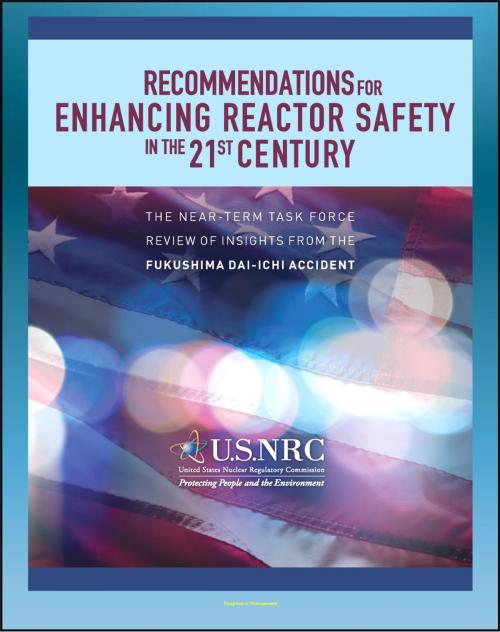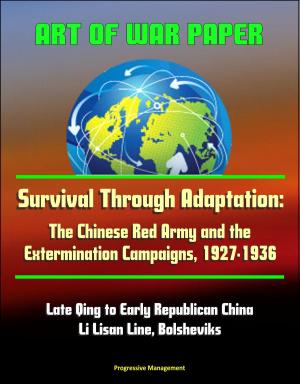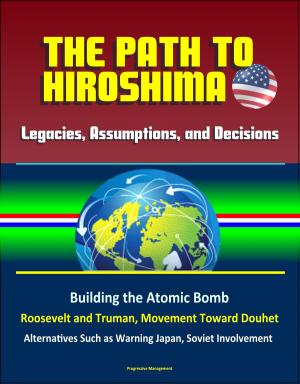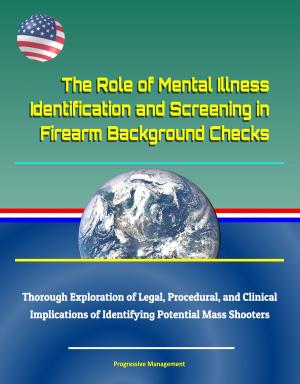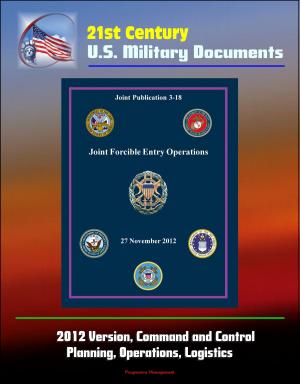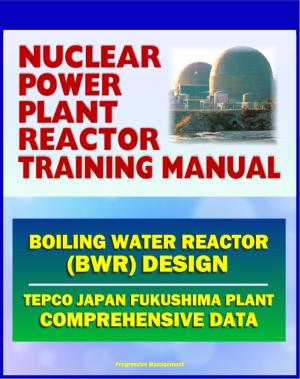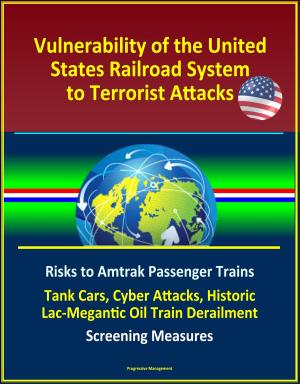Recommendations for Enhancing Reactor Safety in the 21st Century: The Near-Term Task Force Review of Insights From The Fukushima Dai-Ichi Accident (Nuclear Power Plant Disaster)
Nonfiction, Science & Nature, Science, Physics, Nuclear Physics, Social & Cultural Studies, Political Science, Government| Author: | Progressive Management | ISBN: | 9781466197121 |
| Publisher: | Progressive Management | Publication: | March 10, 2012 |
| Imprint: | Smashwords Edition | Language: | English |
| Author: | Progressive Management |
| ISBN: | 9781466197121 |
| Publisher: | Progressive Management |
| Publication: | March 10, 2012 |
| Imprint: | Smashwords Edition |
| Language: | English |
The Near-Term Task Force was established in response to Commission direction to conduct a systematic and methodical review of U.S. Nuclear Regulatory Commission processes and regulations to determine whether the agency should make additional improvements to its regulatory system and to make recommendations to the Commission for its policy direction, in light of the accident at the Fukushima Dai-ichi Nuclear Power Plant. The Task Force appreciates that an accident involving core damage and uncontrolled release of radioactive material to the environment, even one without significant health consequences, is inherently unacceptable. The Task Force also recognizes that there likely will be more than 100 nuclear power plants operating throughout the United States for decades to come. The Task Force developed its recommendations in full recognition of this environment. In examining the Fukushima Dai-ichi accident for insights for reactors in the United States, the Task Force addressed protecting against accidents resulting from natural phenomena, mitigating the consequences of such accidents, and ensuring emergency preparedness. The accident in Japan was caused by a natural event (i.e., tsunami) which was far more severe than the design basis for the Fukushima Dai-ichi Nuclear Power Plant. As part of its undertaking, the Task Force studied the manner in which the NRC has historically required protection from natural phenomena and how the NRC has addressed events that exceed the current design basis for plants in the United States.
The Task Force finds that the Commission's longstanding defense-in-depth philosophy, supported and modified as necessary by state-of-the-art probabilistic risk assessment techniques, should continue to serve as the primary organizing principle of its regulatory framework. The Task Force concludes that the application of the defense-in-depth philosophy can be strengthened by including explicit requirements for beyond-design-basis events. Many of the elements of such a regulatory framework already exist in the form of rules regarding station blackout, anticipated transient without scram, maintenance, combustible gas control, aircraft impact assessment, beyond-design-basis fires and explosions, and alternative treatment. Other elements, such as severe accident management guidelines, exist in voluntary industry initiatives. The Task Force has concluded that a collection of such "extended design-basis" requirements, with an appropriate set of quality or special treatment standards, should be established.
The Near-Term Task Force was established in response to Commission direction to conduct a systematic and methodical review of U.S. Nuclear Regulatory Commission processes and regulations to determine whether the agency should make additional improvements to its regulatory system and to make recommendations to the Commission for its policy direction, in light of the accident at the Fukushima Dai-ichi Nuclear Power Plant. The Task Force appreciates that an accident involving core damage and uncontrolled release of radioactive material to the environment, even one without significant health consequences, is inherently unacceptable. The Task Force also recognizes that there likely will be more than 100 nuclear power plants operating throughout the United States for decades to come. The Task Force developed its recommendations in full recognition of this environment. In examining the Fukushima Dai-ichi accident for insights for reactors in the United States, the Task Force addressed protecting against accidents resulting from natural phenomena, mitigating the consequences of such accidents, and ensuring emergency preparedness. The accident in Japan was caused by a natural event (i.e., tsunami) which was far more severe than the design basis for the Fukushima Dai-ichi Nuclear Power Plant. As part of its undertaking, the Task Force studied the manner in which the NRC has historically required protection from natural phenomena and how the NRC has addressed events that exceed the current design basis for plants in the United States.
The Task Force finds that the Commission's longstanding defense-in-depth philosophy, supported and modified as necessary by state-of-the-art probabilistic risk assessment techniques, should continue to serve as the primary organizing principle of its regulatory framework. The Task Force concludes that the application of the defense-in-depth philosophy can be strengthened by including explicit requirements for beyond-design-basis events. Many of the elements of such a regulatory framework already exist in the form of rules regarding station blackout, anticipated transient without scram, maintenance, combustible gas control, aircraft impact assessment, beyond-design-basis fires and explosions, and alternative treatment. Other elements, such as severe accident management guidelines, exist in voluntary industry initiatives. The Task Force has concluded that a collection of such "extended design-basis" requirements, with an appropriate set of quality or special treatment standards, should be established.
